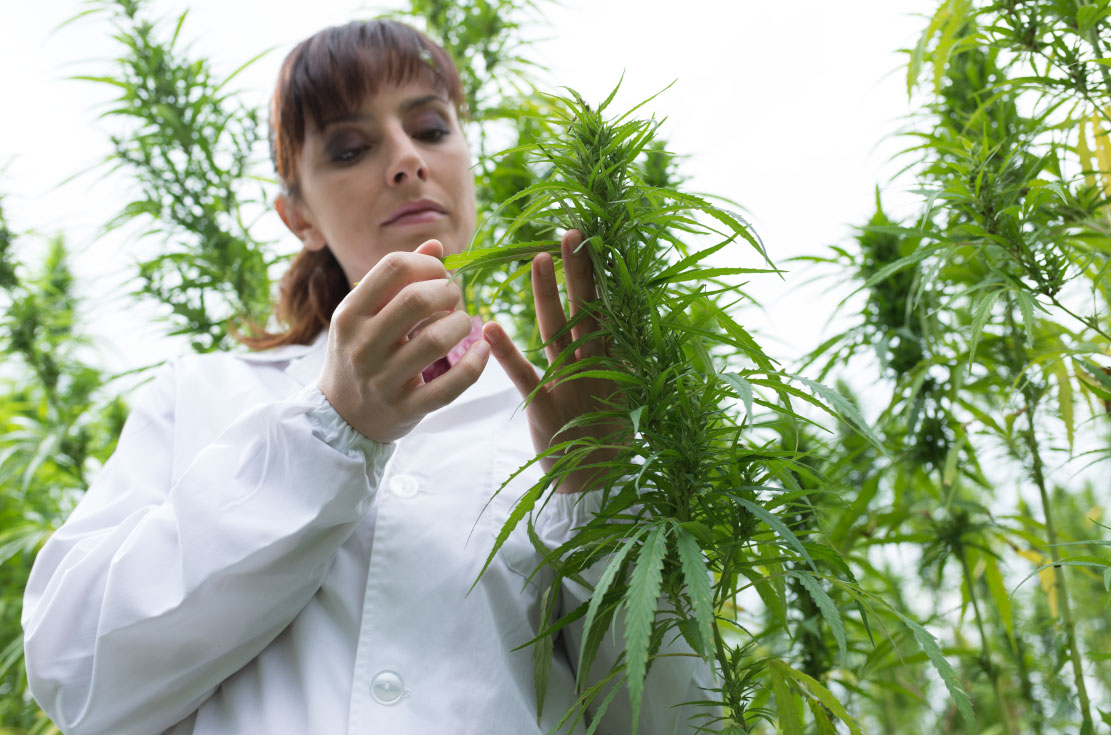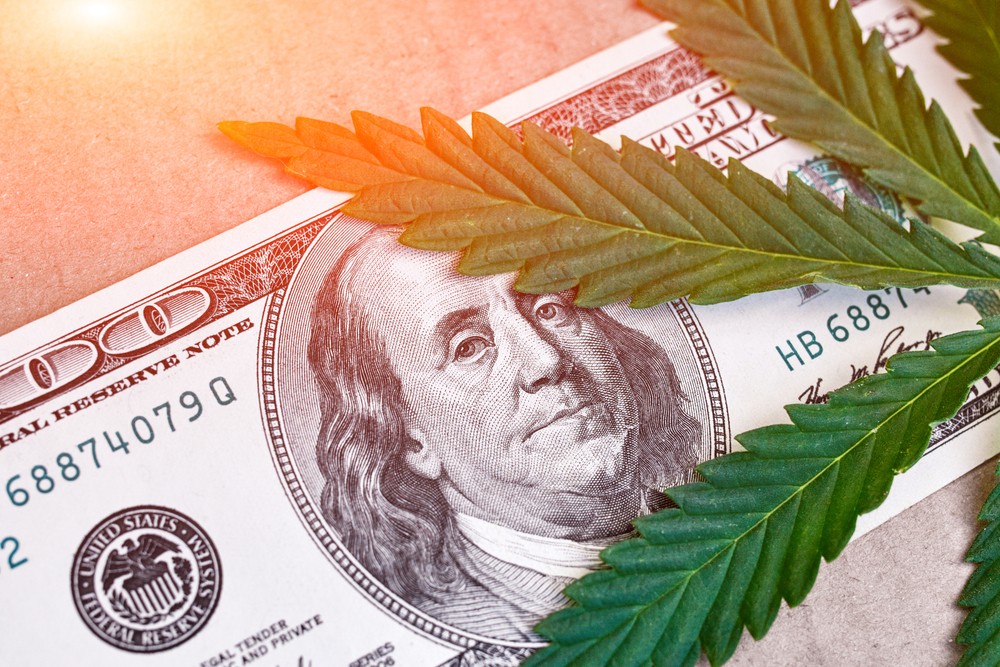Each month, ACT Resources offers useful information to help our clients and friends navigate the ever-changing cannabis industry, where it can be difficult to decipher the truth from fiction. In our inaugural news update, we’ll examine quite a few developments that have unfolded over the past few weeks, which could have significant impacts on federal cannabis policy. We’ll also examine Section 280E and its implications for cannabis businesses as tax season winds down. Want to learn more about what we offer? Contact ACT Resources today!


House Financial Services Committee advances the Secure and Fair Enforcement (SAFE) Banking Act by a vote of 45 to 15
On March 28, the SAFE Banking Act easily survived the House Financial Services Committee by a vote of 45 to 15. The bill, which died in the 115th Congress, has never made it this far in the legislative process.
What is the SAFE Banking Act? The bill would essentially protect financial institutions from federal intervention related to working with cannabis business compliant with state law. Currently, due to the federal prohibition on cannabis, many financial institutions are hesitant to work with cannabis businesses due to fear of reprisal from the federal government. In fact, financial institutions could potentially be charged with money laundering for dealing with cannabis businesses. This has left many cannabis businesses without access to basic banking and financial services.
The SAFE Banking Act would provide much-needed relief to cannabis businesses by opening a wide range of financial services that were previously difficult or impossible to come by. Both plant-touching and ancillary businesses are hard-pressed to find banking and are often at risk of losing their banking if they have managed to find a financial institution that will work with them. The chief cause of the cannabis industry banking crisis is the federal prohibition and the associated risks to financial institutions if the federal government ever chose to crack down. The SAFE Banking Act would absolve financial institutions of those risks, paving the way for their involvement with state law-compliant cannabis businesses just like any other industry.
The Strengthening the Tenth Amendment Through Entrusting the States (STATES) Act reintroduced in Congress
On April 4, the STATES Act was reintroduced in both chambers of Congress. The STATES Act would effectively prevent federal intervention against state law-compliant legal cannabis businesses. The STATES Act could be considered a legislative response to the U.S. Department of Justice’s Cole Memorandum, which former Attorney General Jeff Sessions rescinded in January 2018. That memo set out a similar hands-off policy toward state law-compliant legal operations, and since Sessions’ action, there has been no protection, informal or otherwise, in place.
The passage of the STATES Act would be a huge win for cannabis entrepreneurs that are acting within compliance of their states’ laws. It would mean that federal intervention against those legal cannabis markets is off the table entirely. Last year, before the STATES Act died in committee, President Donald J. Trump suggested he would sign the bill; now, with Democrats in control of the House, Chairman of the House Rules Committee Rep. Jim McGovern (D-MA) said a vote on the legislation could be mere weeks away.


Tax Season and Section 280E
April means taxes. Hopefully everyone’s tax season went smoothly, but in the cannabis industry that’s likely wishful thinking. Most cannabis entrepreneurs are familiar with IRS Code Section 280E by now, but let’s recap since ‘tis the season.
Most businesses generally calculate their taxes by finding their gross annual income and subtracting their annual business expenses to determine their taxable income. Cannabis businesses, however, must pay taxes on their gross income, which significantly increases their tax bill. We have Section 280E to thank for that. Section 280E stipulates that any business “trafficking” in Schedule I or Schedule II substances under the Controlled Substances Act may not deduct business expenses from their taxes.
While restricting cannabis businesses from taking any normal business deductions is anything but funny, the story of how 280E came to be is somewhat amusing. The origins of Section 280E can be traced back to a 1981 lawsuit, in which Jeffery Edmondson, a Minneapolis-based drug dealer, successfully sued the IRS for the right to deduct $105,300 in cost of goods sold for 1.1 million amphetamine pills, 100 pounds of cannabis, and 13 ounces of cocaine. In response to Edmondson’s victory in court, Congress passed Section 280E in 1982 to prevent similar deductions from occurring in the future. Today, the federal government has applied that rationale to state legal cannabis businesses, citing the fact that cannabis remains a Schedule I drug under the federal Controlled Substances Act.
Unfortunately, Section 280E is unlikely to go anywhere until cannabis is either rescheduled, removed from the Controlled Substances Act, or federally legalized. That means that even as more states legalize cannabis, legal cannabis businesses will not be able to deduct normal business expenses like every other legal business in the country.
State-by-state legalization update
Speaking of the growing cannabis legalization movement, let’s take a look at some of the ongoing efforts in statehouses across the U.S.
- New Mexico Gov. Michelle Lujan Grisham signed a cannabis decriminalization bill on April 3, reducing the penalty for carrying up to a half ounce of cannabis to a $50 fine. A legalization bill recently passed in the state’s House, but died in the Senate Finance Committee last month.
- On April 4, New Hampshire’s House voted in support of a cannabis legalization bill. As of the time of the writing of this news update, the Senate has yet to vote on the measure. New Hampshire Gov. Chris Sununu is opposed to legal cannabis.
- Hawaii’s effort to legalize cannabis failed in early March when the Senate Health Committee opted to let the bill die. It was the furthest any legalization effort has made it in the state’s legislature thus far.
- Vermont is already home to legal adult use; however, the state did not greenlight the legal sale of cannabis. A Senate bill to establish a cannabis industry in the state has been approved and referred to the state’s House Committee on Government Operations, where it awaits a markup and vote.
- New Jersey’s long-awaited cannabis legalization bill hit yet another stumbling block in late March when lawmakers failed to bring the legislation to the Senate floor for a widely-anticipated vote. Lawmakers suggested the bill was a few votes shy of passing. Gov. Phil Murphy has vowed to instead expand the state’s medical cannabis program for the second time since his inauguration.
- New York’s legalization efforts also seem to have met some delays, as Gov. Andrew Cuomo did not include cannabis legalization in the state’s 2019 – 2020 budget. The news broke April 1 that cannabis legalization would likely not be up for consideration, at least in the short term.


Federal CBD Regulation Update
Last but far from least, the U.S. Food and Drug Administration (FDA) issued a press release on April 2 that sheds light on its intentions regarding the regulation of industrial hemp-derived CBD products.
Outgoing FDA Commissioner Scott Gottlieb announced that the agency would be hosting a public hearing on May 31 to gather input about the regulation of CBD products. According to Gottlieb, the FDA is also developing a working group to “explore potential pathways for dietary supplements and/or conventional foods containing CBD to be lawfully marketed.”
In addition, Gottlieb revealed that the FDA has issued warning letters to companies that the agency believes have made egregious claims about the therapeutic and health benefits of CBD products. The move emphasized the FDA remains committed to its previous statement that marketing health benefits for CBD without FDA approval would not be tolerated.
While a clear regulatory framework remains to be seen, CBD businesses should avoid making claims regarding the potential health benefits of their products and continue to ensure their materials are responsibly sourced.
ACT Resources knows the cannabis industry
Partnering with an experienced professional with intimate knowledge of the ins, outs, and complications of the cannabis industry is critical to your success. If you’re in need of assistance when it comes to financial and accounting needs for your cannabis business, ACT Resources is here to help. Don’t wait – ACT.





